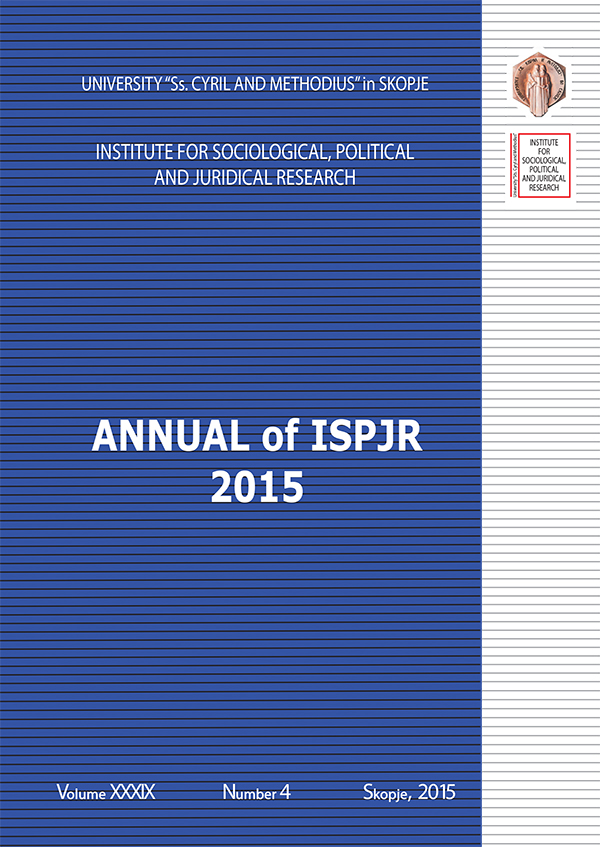GENDER EQUALITY – POLITICALLY INTEGRATIVE CHALLENGE FOR THE PRESENT-DAY BALKANS (THROUGH THE PRISM OF THE FORMER YUGOSLAV REPUBLICS)
GENDER EQUALITY – POLITICALLY INTEGRATIVE CHALLENGE FOR THE PRESENT-DAY BALKANS (THROUGH THE PRISM OF THE FORMER YUGOSLAV REPUBLICS)
Author(s): Radica TodorovskaSubject(s): Gender Studies, Recent History (1900 till today), Nationalism Studies, Post-Communist Transformation, EU-Accession / EU-DEvelopment
Published by: Институт за социолошки и политичко-правни истражувања
Keywords: gender quota; women in parliament; women in the Executive;
Summary/Abstract: Politics represents a segment of the society where male domination was largely accentuated until the 1970s, at which stage the number of females joining in political parties started growing gradually. After the Second World War, this phenomenon had taken a full swing and the number of women in the national parliaments was rising continually until the post-transitional period which witnessed a drastic rise in the women’s active political participation. Simultaneously, the comfort of the former protagonists in the political world began eroding, who as key decision-makers, had their supremacy in the political society threatened. Women’s desire and ability to get involved in political life depends upon several factors, such as the educational, professional, social status and the development of democratic institutions. The equal participation of women in political processes, enjoying equal rights for fulfilling their personal potentials and the equal status with males can affect women’s political, social and cultural development in the modern democratic society. The Balkans have witnessed a region where the ever increasing number of women present in politics signals the abandonment of a patriarchal society by focusing on the interests for approaching the European Union. The countries from the Yugoslav Federation going through a phase of post-communist transition perfectly epitomize the analysis of the society’s political transformation, especially from the aspect of gender equality. While in the 1990s the Balkans was still under the domination of military leaders, males-nationalists, the following century has envisaged a legislative category for gender equality. Therefore by enacting the positive law, the Balkan countries have incorporated mandatory quotas for female presence in politics.
Journal: Annual of the Institute for Sociological, Political and Juridical Research
- Issue Year: XXXIX/2015
- Issue No: 4
- Page Range: 75-93
- Page Count: 19
- Language: English

